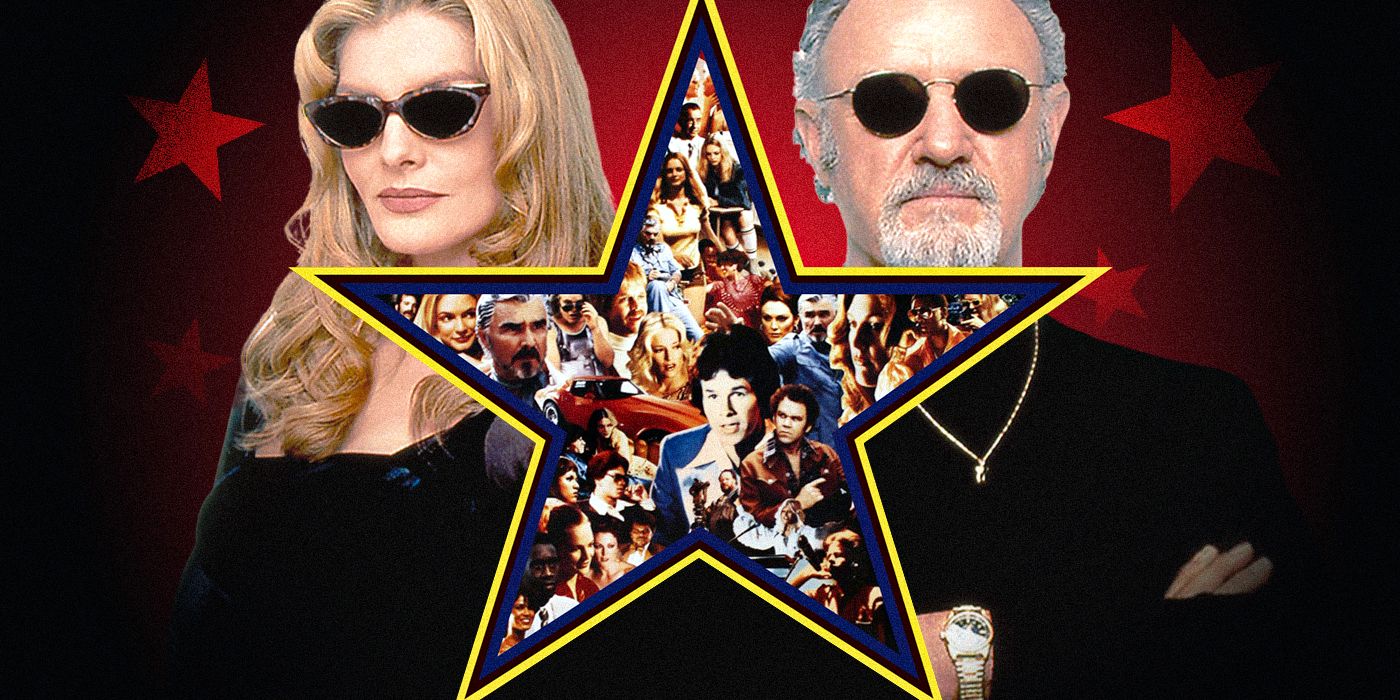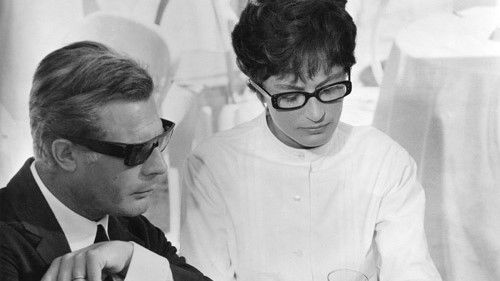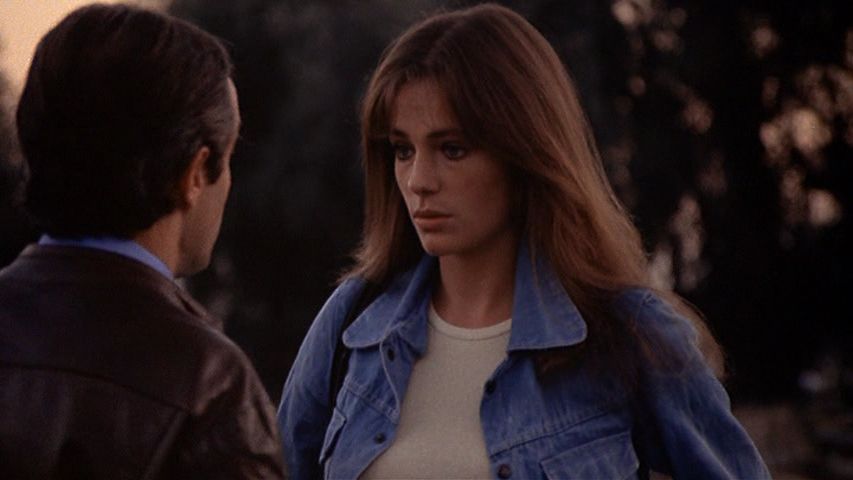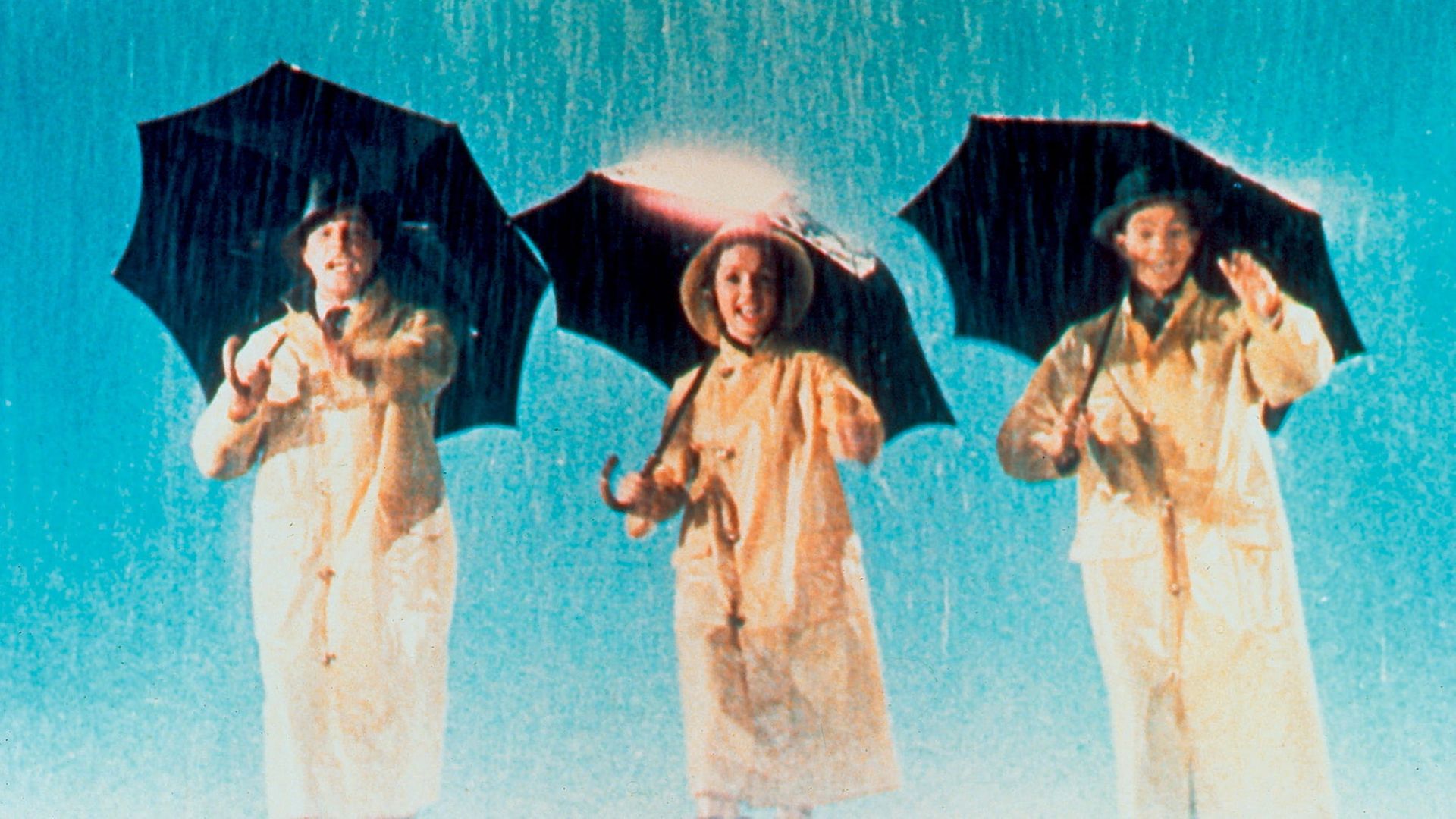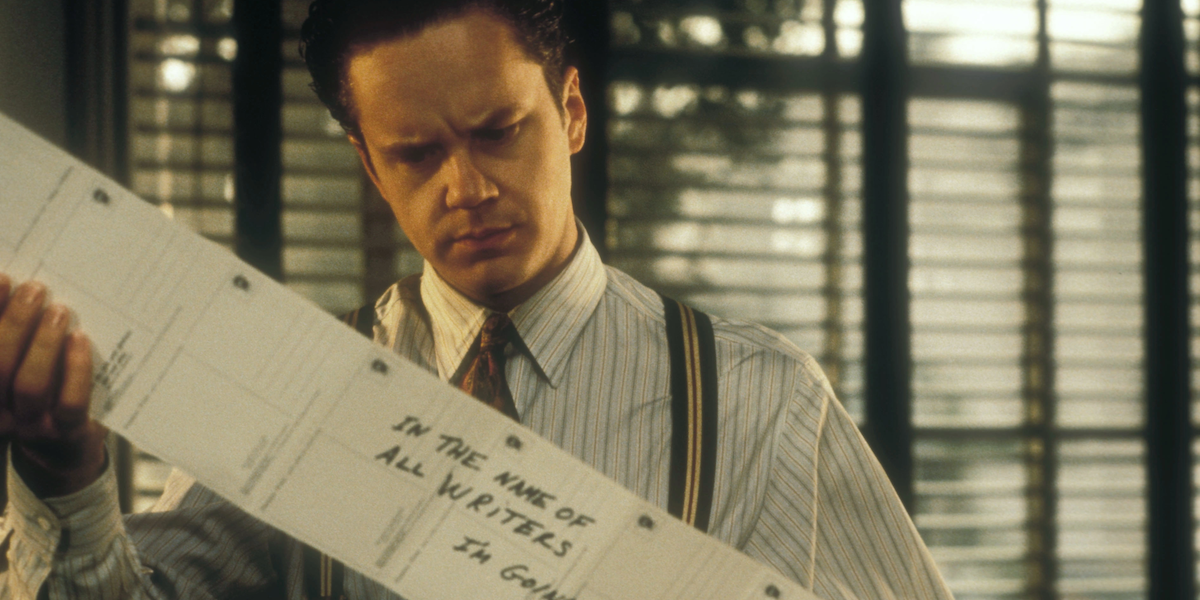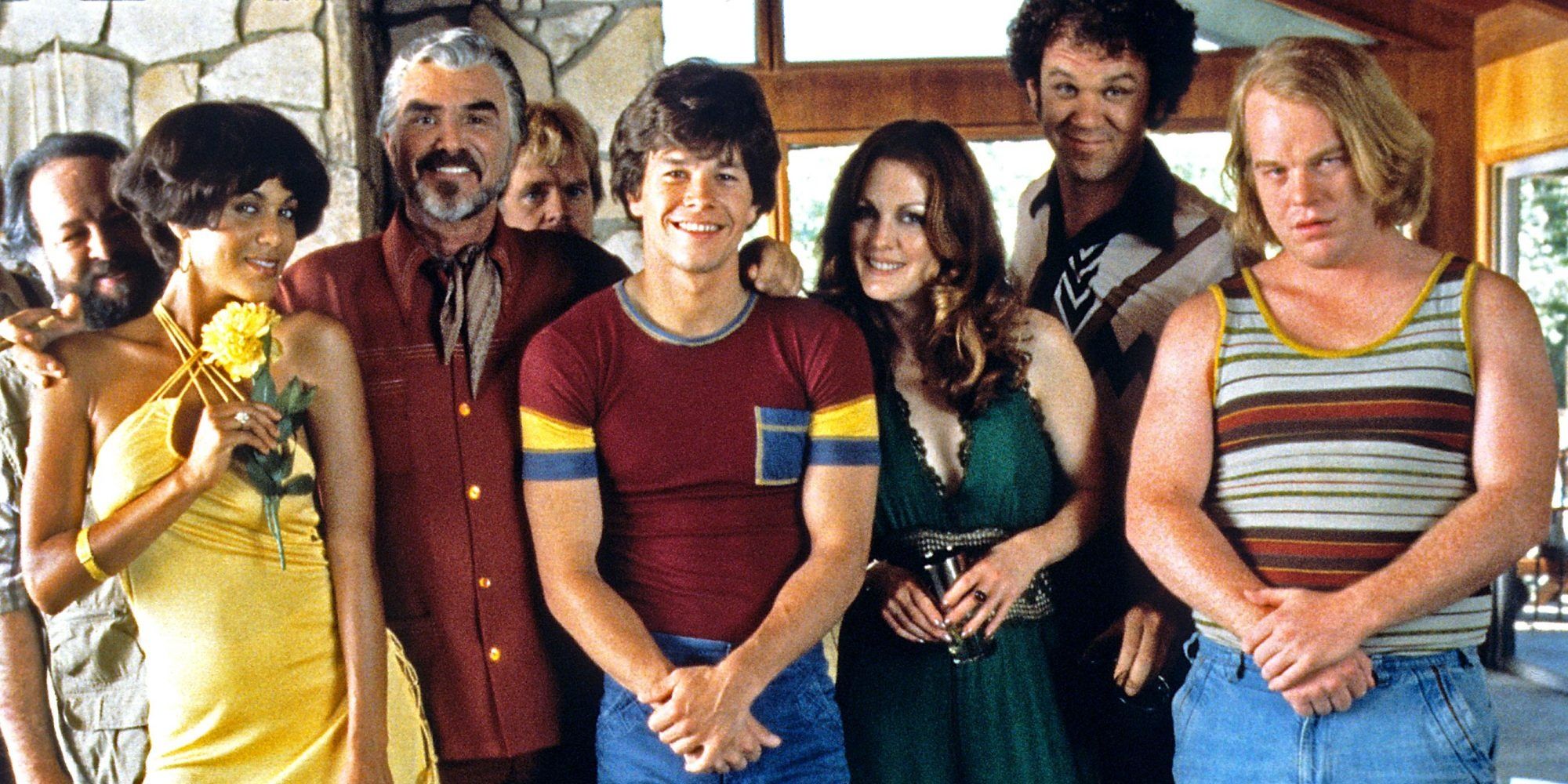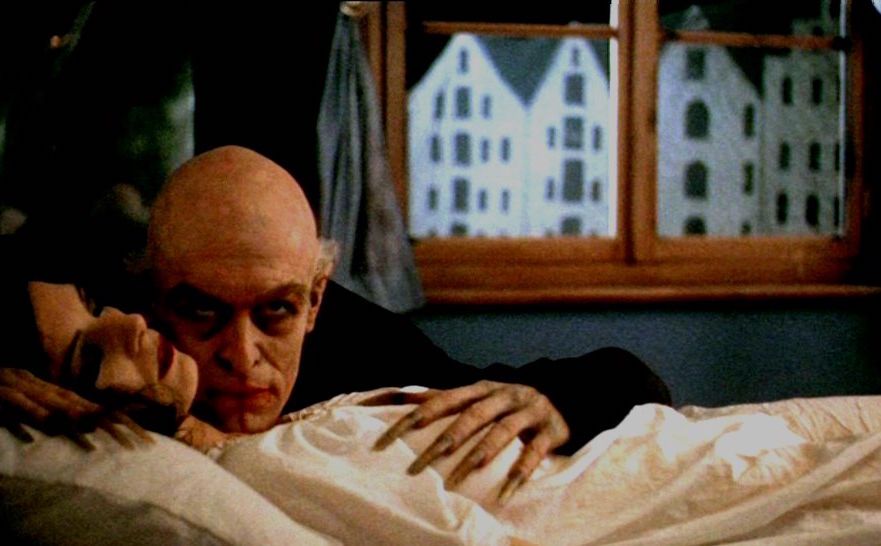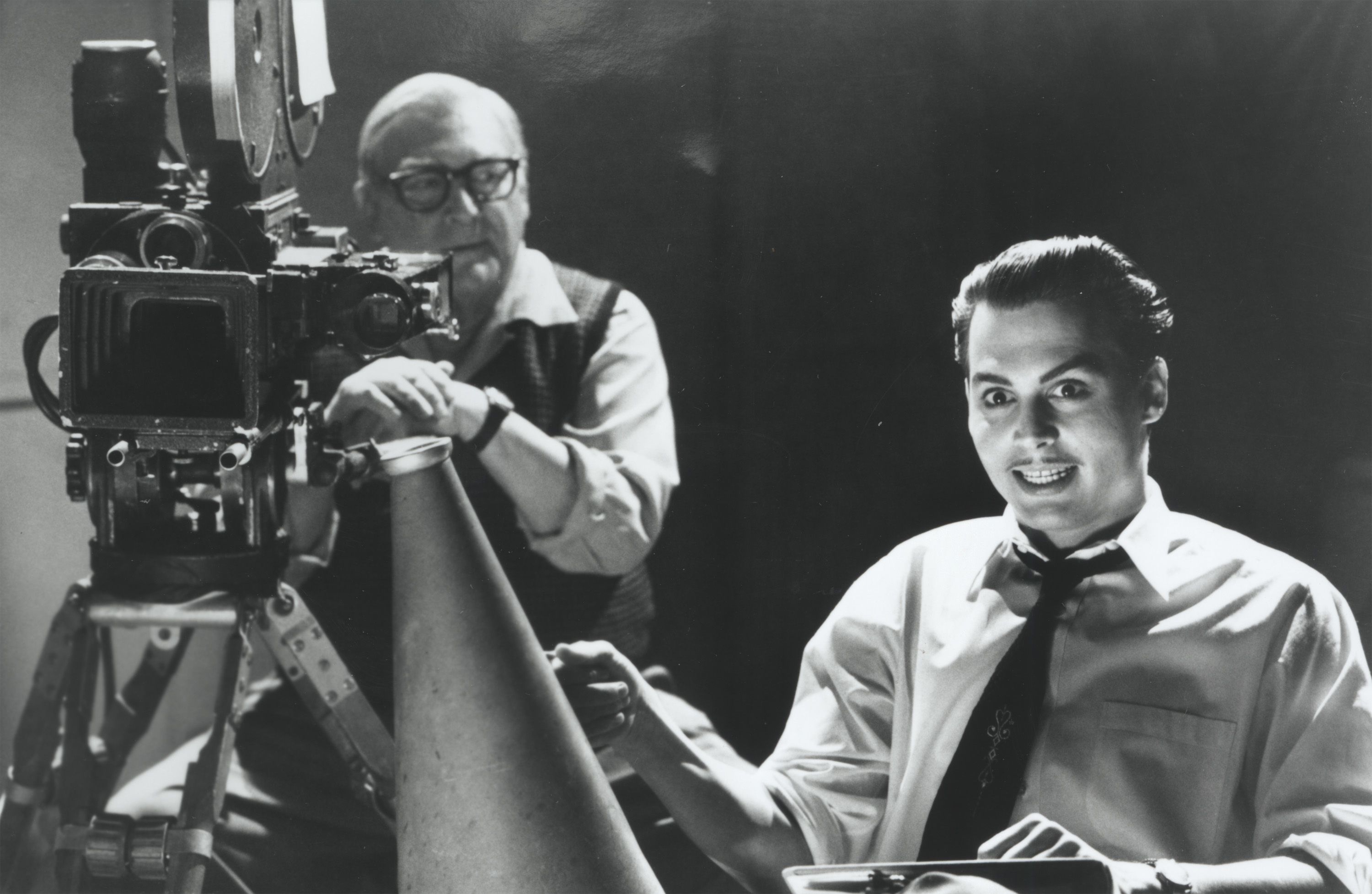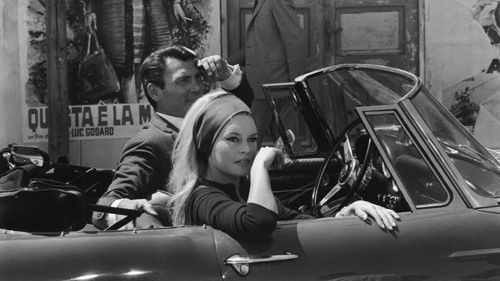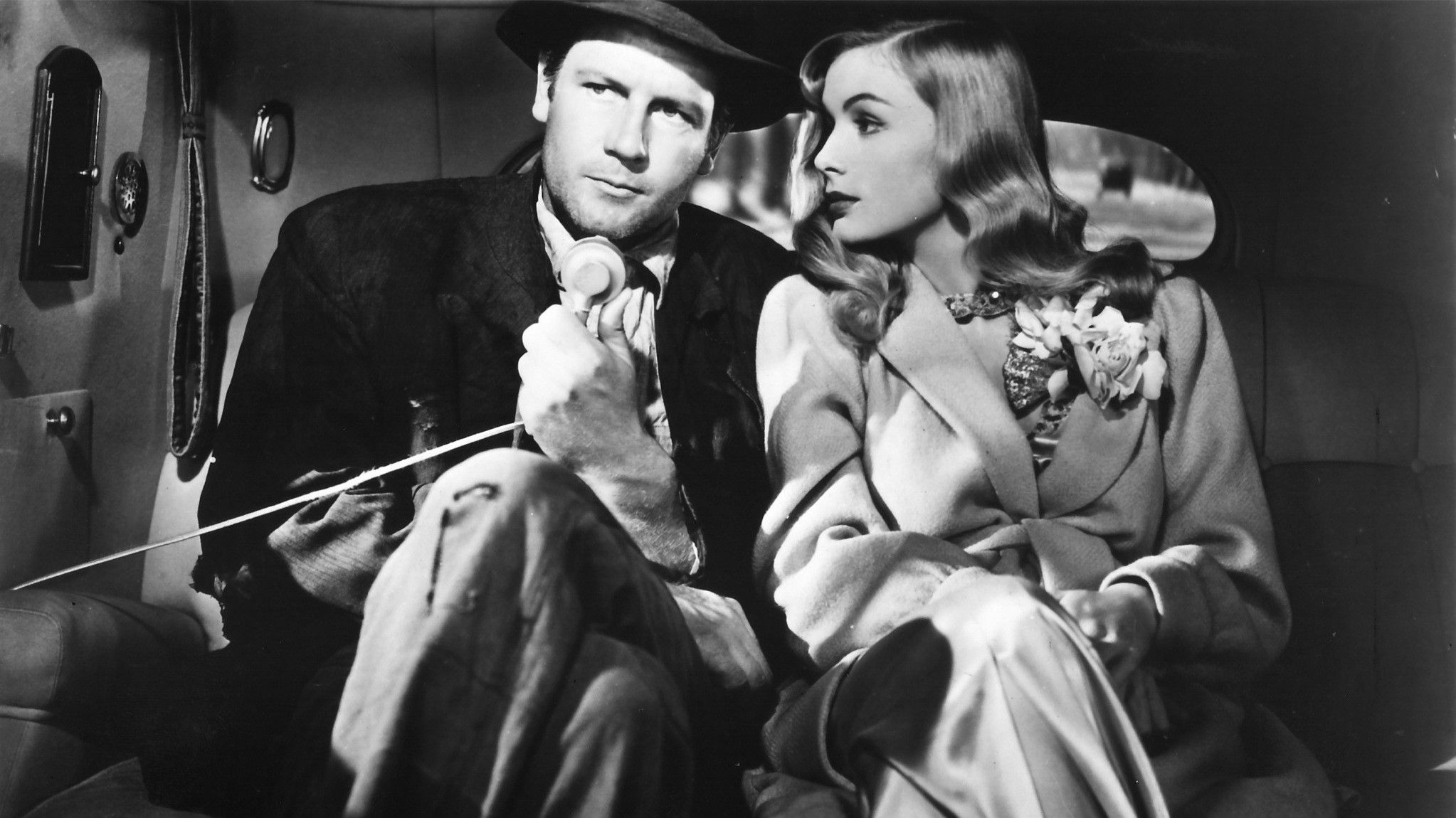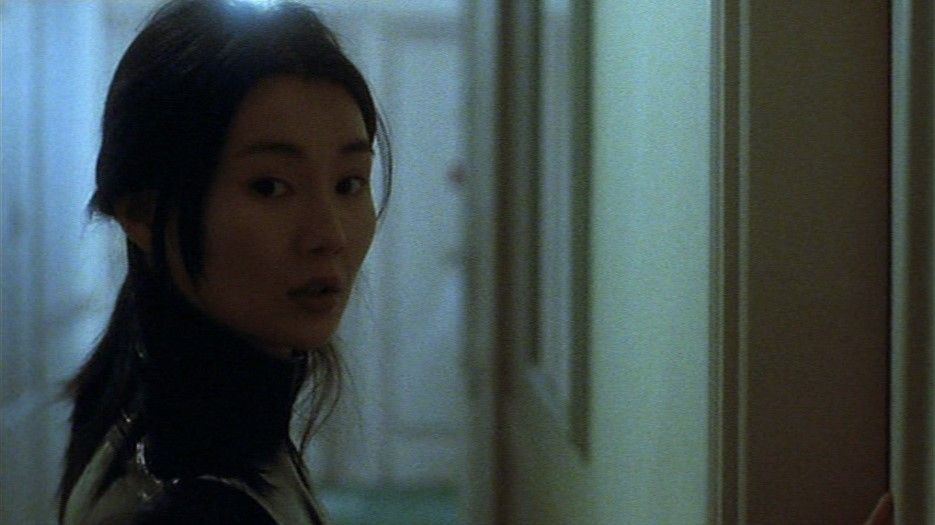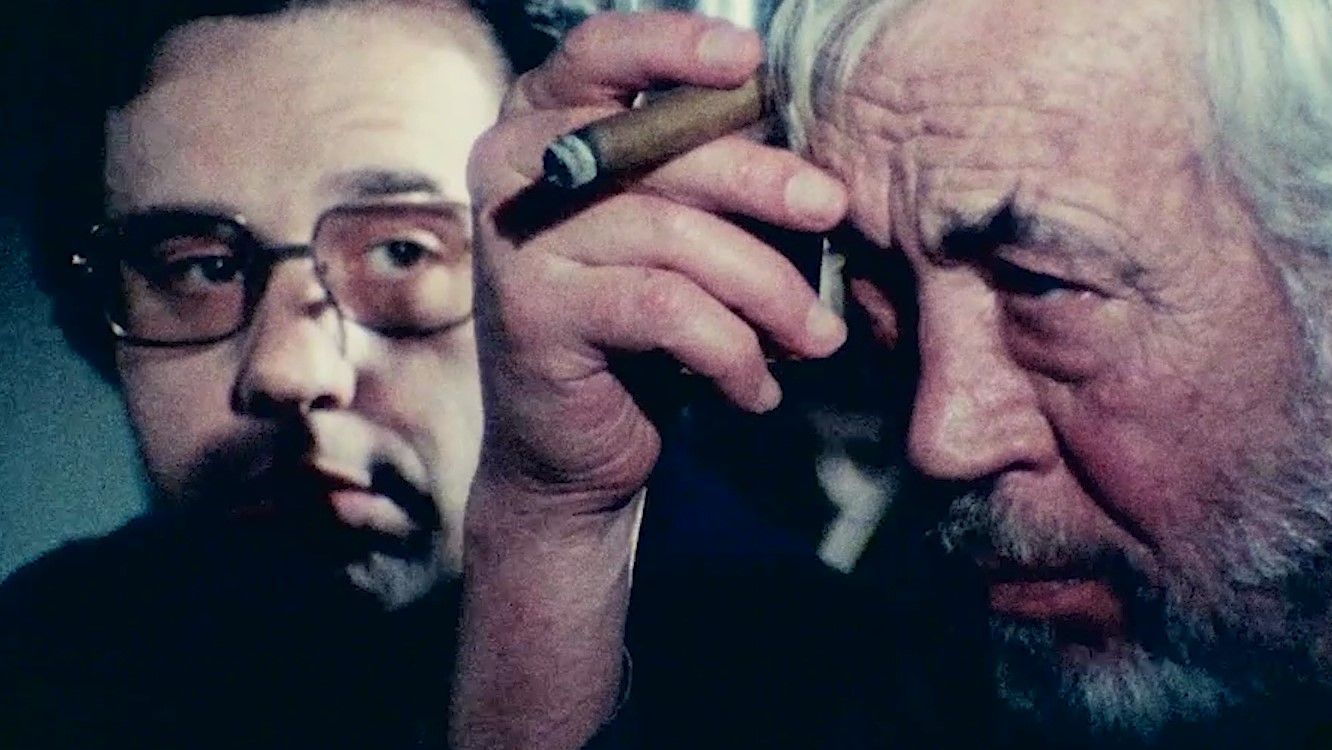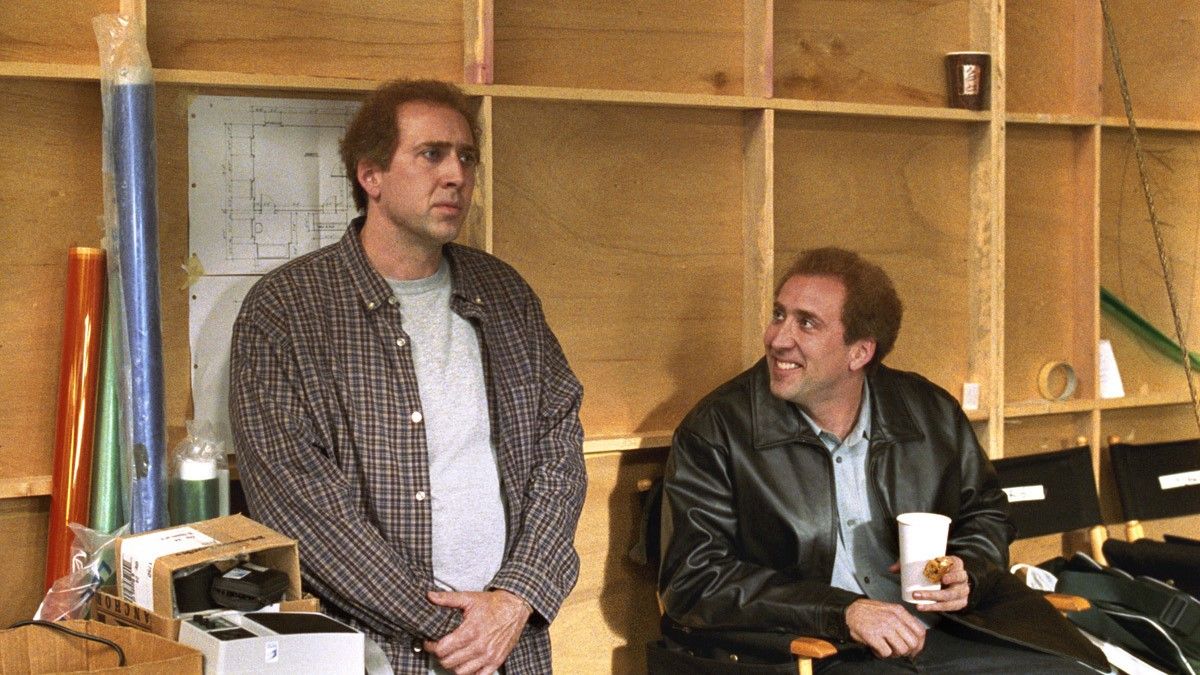Films entertain, educate, and captivate us. Movies can tell us impossible stories—or real ones—and take us away from our everyday lives. But isn’t it easy to take for granted what actually goes into making a movie? One of the most inherently collaborative of all artistic mediums, filmmaking can be a complicated process. Auteur directors may see themselves at the center of the filmmaking universe, but every aspect of a movie’s inception is crucial to its success.
There’s something fascinating about watching movies, real or fictional, get made. One can watch Les Blank’s documentary on Werner Herzog’s Fitzcarraldo and see the literal blood, sweat, and tears that go into a movie. American Movie shows the obstacles faced by independent filmmakers. But what about the movies that don’t actually exist? Movies about fictional film productions can fit into a wide array of genres, from the Coen Brothers’ comedic Hail Caesar! to Ti West’s grotesque horror film X.
Here are 13 of the best fictional movies about filmmaking to take you behind the curtain into the chaotic world of the movies.
8 ½ (1963)
Federico Fellini’s dreamscape 8½ is a frenzied look inside the mind of one of cinema’s most singular artists. Guido Anselmi (Marcello Mastroianni) is a womanizing, daydreaming director troubled with following up his most acclaimed work. Repeatedly plagued by writer’s block issues, Anselmi indulges in extravagant fantasies and memories as they blur together with his waking life and his creative work. The film manages to take the personal (it’s largely agreed that much of the film comes from the director’s real life) and transform it into something poignant about the creative process. A flashy, self-reflective work filled with an endless sense of wonder, 8½ is a film that only Fellini could make.
Day For Night (1973)
François Truffaut makes a wonderful show of movie making in his '70s hit Day For Night, a picture about a film production troubled by selfish and dramatic stars. Everything that can go wrong does, but that doesn’t stop the show from going on—or at least trying to. With an international cast including an endearing performance by frequent Truffaut leading man Jean-Pierre Léaud, it’s a movie that can’t help but declare its director’s own obsession with cinema. While many films about filmmaking overlook the technical aspect of the craft, Day For Night includes a glance at nearly every step of the process, from the effects crew to the script girl. The film is less concerned with painting a realistic portrayal of movie making than creating a lavish fantasy of it. It’s a complete spectacle and a treat for the senses guaranteed to delight moviegoers everywhere.
Singin’ in the Rain (1952)
Even if you haven’t seen the movie, you’ve probably heard the music. One of the greatest movie musicals ever made, Singin’ in the Rain is an absolute spectacle for all the senses. This charmer of a picture stars Gene Kelly, Donald O’Connor, and Debbie Reynolds as a group of actors and singers that struggle to transition from the silent film era to the talkies. Shot in lavish Technicolor and featuring direction and choreography from Gene Kelly and Stanley Donen, it’s the kind of movie that’s essentially impossible not to love. The songs are delightful and catchy, the dancing is fantastic, and each frame seems to leap off the screen in a burst of passion. There’s a reason why the titular song—with Gene Kelly crooning playfully in a rainy street—is so instantly recognizable. It’s a moment of pure joy in a film full of them. For some, it’s a treat, and for others, it’s a revelation.
The Player (1992)
Quiet on the set! Robert Altman’s Hollywood-lampooning comedy stars Tim Robbins and features cameos from over 60 of cinema’s biggest stars. When a rude film producer (Robbins) starts to receive threatening letters from a writer whose pitch he’d ignored, he investigates a man who he believes to be the sender (Vincent D’Onofrio). In what’s a satirical send-up of the movie business as well as an amalgamation of comedic, dramatic, and noir genres, The Player has a razor-sharp (and self-reflective) script littered with industry references. Just watch the lengthy opening shot that makes its way across a Hollywood lot, all the while two characters discuss the brilliance of Orson Welles’s long take in Touch of Evil. It’s a crime film like any other and a hilarious send-up of the people that make the movies we love.
Boogie Nights (1997)
Paul Thomas Anderson’s magnificent opus Boogie Nights tells us about another type of filmmaking: pornography. A period drama set in the late ’70s and early ‘80s, PTA’s film is centered around a young porn actor (Mark Walhberg) as he rises to prominence in the adult film industry. Burt Reynolds gives a dynamite performance as Jack Horner, a charming veteran director in the world of porn that believes that quality and integrity are important to the movies that he makes. In changing times, however, producers crunch some numbers to find that low-production videotapes offer a higher profit than Horner’s costly “artistic” films. With only his second picture, Anderson showcases an absolute mastery of his medium, utilizing a fantastic ensemble cast (William H. Macy, Don Cheadle, Heather Graham, and Philip Seymour Hoffman, just to name some) to the best of their talents. It’s an exuberant piece of art that examines the comic and tragic consequences of fame and the inevitable downfall of movie stars.
Shadow of the Vampire (2000)
In a fictionalized portrayal of the filming of F.W. Murnau’s Nosferatu, the cast and crew begin to form haunting suspicions about their enigmatic lead Max Schreck (Willem Dafoe). Shadow of the Vampire exudes a passion for Nosferatu and silent film itself, utilizing many stylistic devices from the era and effortlessly shuffling them amongst its modern techniques. Not satisfied with remaking the horror classic, E. Elias Merhige’s film builds spooky mythology around its production while paying homage to it. An excellent horror film in its own right, Shadow of the Vampire shows how far artists are sometimes willing to go to capture their vision.
Ed Wood (1994)
If you're a fan of deliciously bad movies, you probably know about Ed Wood. The king of terrible B-movies, Wood has crafted a slew of infamous pictures, including the late-night favorite Plan 9 From Outer Space. Tim Burton’s black-and-white comedy Ed Wood stars Johnny Depp as the enigmatic director making his way through the movie industry. Devoted to outcasts with big imaginations, Ed Wood is a feel-good movie that chooses to praise Wood rather than mock him. The zany spirit of the director is captured endearingly via a sympathetic performance from Depp, and a fantastic supporting cast—including Martin Landau, Vincent D’Onofrio (as Orson Welles!), Sarah Jessica Parker, and Bill Murray—rounds out the film and gives life to Ed Wood’s strange-but-lovable friends and collaborators.
Contempt (1963)
Few films portray the art of movie making as unflatteringly as Jean-Luc Godard’s Contempt. The French New Wave filmmaker’s attempt at a big-budget film is also an indictment of the very concept, centering around a doomed epic production of The Odyssey. A successful playwright (Michel Piccoli) and his wife (Brigette Bardot) spend time in Greece during pre-production on the project, while a stubborn film director (Fritz Lang, playing himself) and a spoiled American producer (Jack Palance) frequently reach creative impasses. Godard juggles so many themes that one would expect him to fumble, but he doesn’t. The futility of a faithful literary adaptation, the indulgence of blockbuster cinema, the inherent flaws in verbal communication, and the fickle nature of love are all thoroughly analyzed in 100 short minutes. Shot in breathtaking CinemaScope and given a gorgeous, swooning score by the great Georges Delerue, Contempt accomplishes the tricky task of making a fantastic big-budget picture while simultaneously championing against it.
Sullivan’s Travels (1941)
Dedicated “to the memory of those who made us laugh”, Sullivan’s Travels follows John Sullivan, a cynical film director (Joel McCrea), who takes to traveling around the country in order to understand the struggles of the less fortunate—so he can make a better movie about them. Preston Sturges’s uproarious comedy shoots a rapid-fire procession of vaudeville-esque gags and one-liners, the dialogue running at breakneck speed. Sullivan’s experiences are ripe with comedic excellence, and once he meets a down-on-her-luck aspiring movie starlet (Veronica Lake), the film takes off at full steam. The messages at its core—that artists are too often removed from the realities they attempt to portray, and that laughter is one of the world’s greatest medicines for misery—give Sullivan’s Travels an extra bit of weight. It's a lovely film, as sure to pull at your heartstrings as it is to make you laugh.
Irma Vep (1996)
Olivier Assayas brilliantly questions the state of contemporary French cinema in Irma Vep. A Hong Kong actress (Maggie Cheung, playing herself) is set to star in a remake of the silent serial classic Les Vampires, which is to be directed by an aging veteran director (Jean-Pierre Léaud). Cheung is fantastic as the fish-out-of-water foreigner attempting to acclimate to the French culture of her co-stars. Though undeniably indebted to many of the films on film that preceded it, Irma Vep fashions an original—and insightful!—meditation on several generations of movies and their makers, while questioning the very importance of the medium itself.
Other Side of the Wind (2018)
With somebody like Orson Welles, an unfinished and vaulted film is akin to the lost Holy Grail. So when the rights to the movie were finally released and a crowdfunding campaign helped put the finishing touches on Welles’s posthumous picture, it was hard not to be ecstatic at the thought. Thankfully, Other Side of the Wind is a madcap snapshot of late-career Welles showing his sheer brilliance as an artist. It follows a Hemingway-esque film director (John Huston) whose latest work (also titled Other Side of the Wind) is nearing completion. The majority of the film is centered around the director's 70th birthday, as his stars, producers, and other figures from the business push him towards a mental breakdown. Unsurprisingly, Welles brandishes an inventive style by mixing a mockumentary with the artful and incomprehensible film-within-a-film (said to be a parody of Italian auteur Michelangelo Antonioni). With everything that it accomplishes, it’s hard not to admire the film’s boldness alone. It also happens to be a fascinating character study, a window into the life of an aging and washed-out director, and a meditation on what the film camera actually means.
Adaptation (2002)
Adaptation is a look into the bizarre mind of Charlie Kaufman as he attempts to write a screenplay adaptation of Susan Orlean’s The Orchid Thief. In this deeply meta film, Nicolas Cage stars in the dual role of Charlie Kaufman and his fictional twin brother Donald. As Kaufman struggles to make artistic sense of his source material, he’s pulled not only deep into his own anxiety but also into Orlean’s (Meryl Streep) experiences with the orchid thief (Chris Cooper) from her book. It’s the type of film that’s genuinely hard to do justice through an explanation—it’s much better experienced. With Adaptation, Kaufman crafted one of the most fascinating screenplays of the 21st Century, one as fascinated with its own creation as it is with the story it aims to tell.
Get Shorty (1995)
Adapted from an Elmore Leonard novel, Get Shorty follows an eccentric cast of gangsters and film producers as their fates intertwine over the collection of a few owed loans. Chili Palmer (John Travolta) travels to Los Angeles to collect a debt from a Hollywood B-movie filmmaker (Gene Hackman) and inadvertently sparks the rage of a local drug dealer (Delroy Lindo). Apart from its lavish ensemble cast, Get Shorty succeeds through its suave, laid-back style and dialogue that leaps off the page. Just listen to Chili Palmer’s rapid-fire firing of movie quotes and trivia—it’s a love of movies that’s completely contagious.

